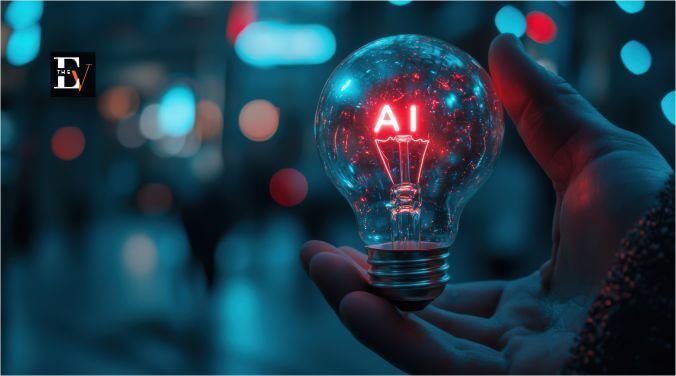The Rise of AI Visionaries
Artificial Intelligence (AI) is no longer in the realm of tomorrow, but it’s a business-shifting, economy-paced, day-in-and-day-out speed-up. It’s an emerging technology that is harnessed by tech leaders and AI business developers. They’re crafting solutions that are efficient to solve complex problems, automate daily tasks and create a better future.
This article will explore the leaders who are revolutionizing the change, the impact that is being created, and the future that AI and technology hold.
Changing Industries through AI
Artificial intelligence is the present and future. AI enables everything, from your Netflix suggestion of a TV show to self-driven automobiles and advanced diagnostic software. Companies, governments, and consumers are embracing AI at record levels to make things more productive, more informed in their decision-making, and react to changing challenges.
Tech billionaires like Elon Musk, CEO of Tesla & xAI; Jensen Huang, CEO of NVIDIA, and Sam Altman, CEO of OpenAI, are spearheading the innovation that will shape the future of AI. They are accelerating machine learning, neural networks, and automation technology and exploring new horizons in different sectors.
Visionary Leaders Defining the Future
- Jensen Huang – Powering AI with Next-Generation Computing
NVIDIA CEO and founder Jensen Huang has transformed AI with compute-based GPUs. Something that was initially created to enable games to function now computes AI, deep learning, healthcare, finance, and autonomous vehicle data analysis, among others. AI-accelerating hardware and software like the NVIDIA AI Enterprise platform are now part of NVIDIA processors, further accelerating AI and allowing businesses and researchers to unlock deeper learning.
- Sam Altman – Redefining AI with OpenAI
Sam Altman, CEO of OpenAI, is at the forefront of AI’s integration into daily life. OpenAI’s ChatGPT and DALL·E have demonstrated the immense potential of generative AI, revolutionizing content creation, programming, and business automation. Altman advocates for responsible AI development, emphasizing transparency, regulation, and ethical AI deployment to ensure that AI benefits humanity rather than becoming a risk.
- Demis Hassabis – Brought AI to Healthcare and Science
Google DeepMind CEO Demis Hassabis has brought AI to new heights, i.e., disease cures and scientific breakthroughs. DeepMind’s AI: AlphaFold can predict the protein structure which has revolutionized biomedical sciences and medicine development. The innovation will be accelerating new medicine and cures for some of the currently incurable diseases.
- Fei-Fei Li – Encouraging Ethical and Human-Centered AI
AI ethics and innovation pioneer Dr. Fei-Fei Li is an associate professor of computer science and a co-director of the Stanford Human-Centered AI Institute. She has translated computer vision and deep learning into making AI technologies socially beneficial, equitable, and fair. She is working on making AI responsibly designed, particularly in healthcare, education, and social justice.
The Impact of AI on Industries
AI is transforming various sectors, optimizing processes, and opening new possibilities.
- Healthcare: AI diagnosis, robot surgery, and personalized treatment are enhancing patient results. For instance, IBM Watson Health is applied to review medical history and suggest treatment.
- Finance: AI detects fraud, performs trades, and personalizes banking services, with JP Morgan and PayPal employing AI to assess risk.
- Retail & E-commerce: Chatbots, recommendation engines, and supply chain optimization are all fueled by AI. Amazon and Alibaba leverage AI to improve customer experience and logistics.
- Autonomous Vehicles: Tesla, Waymo, and Cruise are leading the charge for autonomous technology, making transport safer and more efficient.
Challenges and Ethical Issues in AI
AI is invaluable but is surrounded by challenges that the best in the tech industry must deal with:
- Bias & Fairness: Machine learning occurs from bias in training data, making the output biased.
- Work Displacement: Automation displaces workers and makes employees redundant, compelling employees to relearn.
- Privacy & Security: Information gathering and tracking through the assistance of AI lead to ethics issues on maintaining the privacy of users intact.
- Regulation & Accountability: Businesses and governments need to develop regulations to make sure the development and use of AI end up being successful.
The Future of AI: What’s Next?
The coming decade will see the continued evolution of AI, which will include:
- General AI: Humanlike logic and problem-solving AI systems.
- Quantum AI: Where quantum computing is applied to AI to address intricate scientific and commercial problems.
- AI-Powered Creativity: Generations of increasingly advanced generative AI models to improve art, music, and literature.
- Talent-AI Partnership: AI as a resource that augments human capability and not replaces it, resulting in increased productivity and innovation.
Seizing the AI Revolution
The future is for learners. As a business leader, entrepreneur, or learner, it is important to remain current with AI trends.
- Engage in AI & Tech Courses: Enroll in online courses on AI, machine learning, and data science.
- Handle AI Ethically: Promote ethical AI practices and advocate for technology policies of equality.
- Invest Directly in AI Innovations: Invest in AI-driven businesses and track tech influencers.
AI isn’t only transforming industries—it’s transforming the world. Ready to be part of it?





